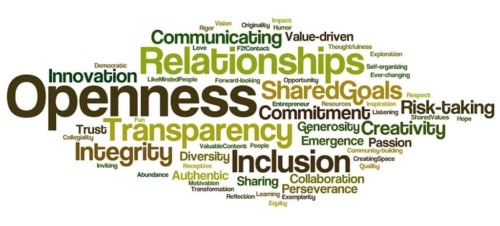pattern_style=”light” title=”Facilitating Continuous Professional Development
By Jennifer Abrams
I had the fantastic opportunity to meet David Weston of the Teacher Development Trust (TDT) this past month. David is the executive director of TDT and he spends much of his time thinking about and facilitating (CPD) ‘continuous professional development.’ We spoke about the challenges of providing, supporting and implementing CPD in schools, and aligning to the UK Standard for Teacher’s Professional Development. Their standards around PD are similar to what we have in the USA.
The Department of Education in the UK has set out a standard that all:
- Professional development should have a focus on improving and evaluating pupil outcomes.
- Professional development should be underpinned by robust evidence and expertise.
- Professional development should include collaboration and expert challenge.
- Professional development programmes should be sustained over time. And all this is underpinned by, and requires that:
- Professional development must be prioritized by school leadership.
 I agree. Relevant, worthwhile, researched-based, student-centered professional learning that is ongoing and is given support and time by school administration is a good thing. And, as written, the work of teacher and administrator leadership development wouldn’t directly fit with those guidelines.
I agree. Relevant, worthwhile, researched-based, student-centered professional learning that is ongoing and is given support and time by school administration is a good thing. And, as written, the work of teacher and administrator leadership development wouldn’t directly fit with those guidelines.
Work on collaboration, learning how to have humane and growth producing hard conversations, being generationally savvy in our communications, effectively leading teams and creating identity-safe workspaces is defined by the Standard as “indirect professional development,” and is stated as “contribute[ing] to improve the running of a school or by developing teachers in other ways.”
The word, ‘indirect’ has a lot of synonyms. Peripheral, ancillary, and secondary are just a few, according to www.thesaurus.com. And I get it. I understand the work I do is one degree away from or one click off from classroom practice.
And, I wholeheartedly believe and know that teacher leadership and the development of adults as learners and effective communicators has the potential to affect student achievement and school culture.
 True to our countries of origin, David had tea and I had coffee and we talked till dark about adult learning – continuous growth, the need to be curious about one’s practice, the skill of inquiry, an ability to be other-focused, the capacity to reflect and the understanding that we must be agents and drivers in our development as human beings and educators.
True to our countries of origin, David had tea and I had coffee and we talked till dark about adult learning – continuous growth, the need to be curious about one’s practice, the skill of inquiry, an ability to be other-focused, the capacity to reflect and the understanding that we must be agents and drivers in our development as human beings and educators.
Both direct professional learning – conversations about one’s teaching practice, learnings about one’s content, opportunities to watch one another work – AND indirect professional learning – how to be an effective team member, how to communicate with other adults, how to coach, facilitate and to lead – are both essential. I want it all. How about you?
- edCircuit – The Deep End: How to be more influential
- Edutopia – Why Quality Professional Development for Teachers Matters
- Education Week – It’s Time to Restructure Teacher Professional Development


